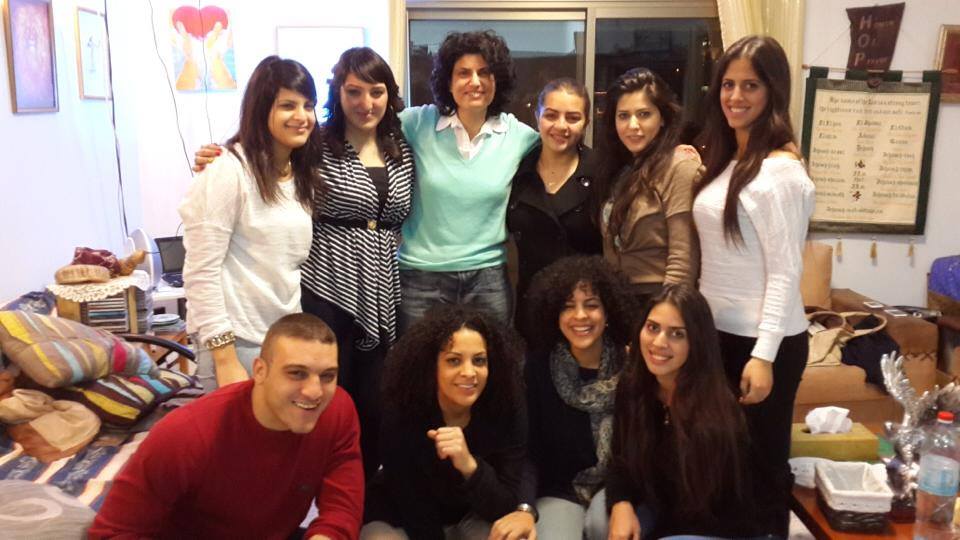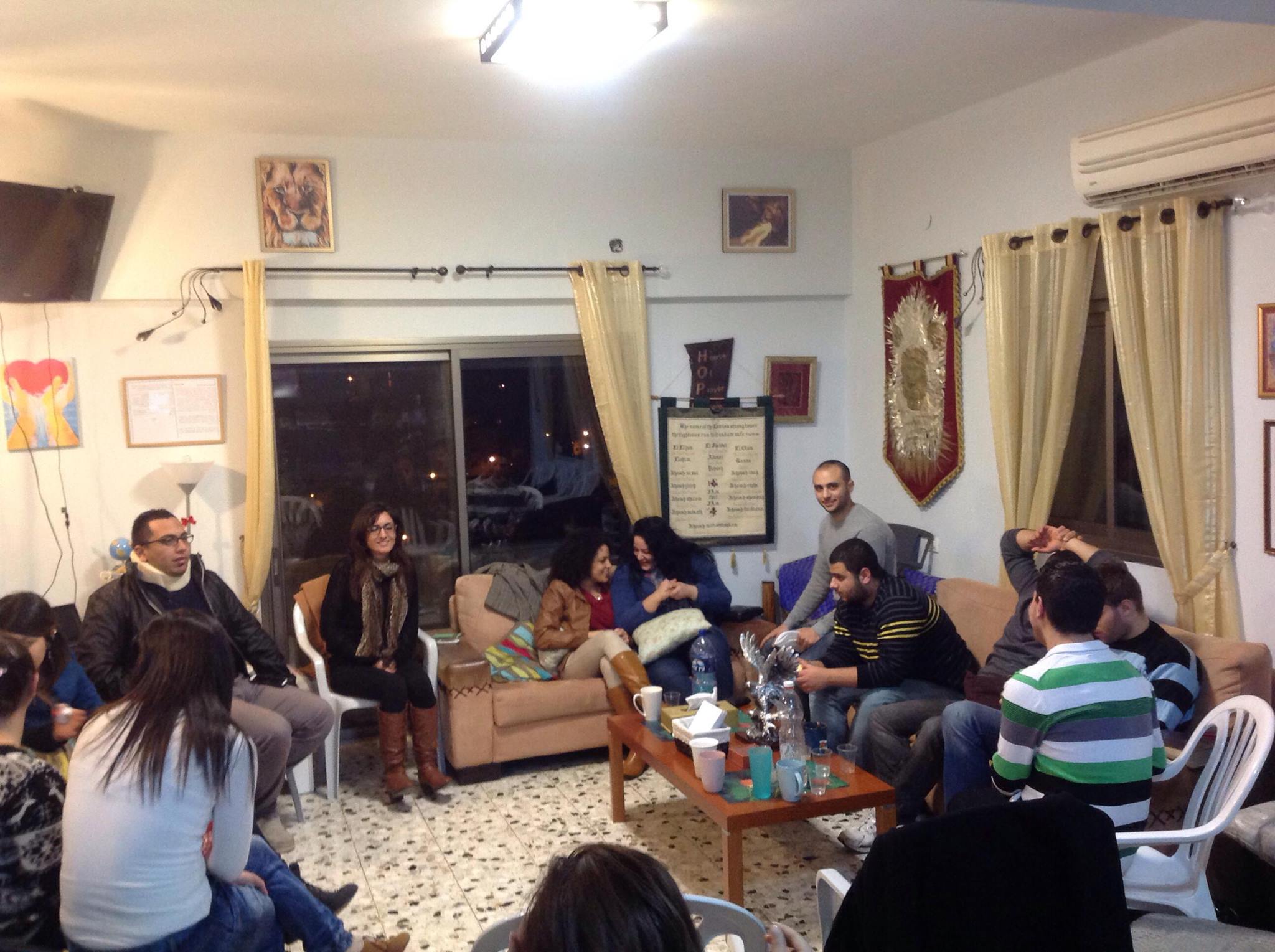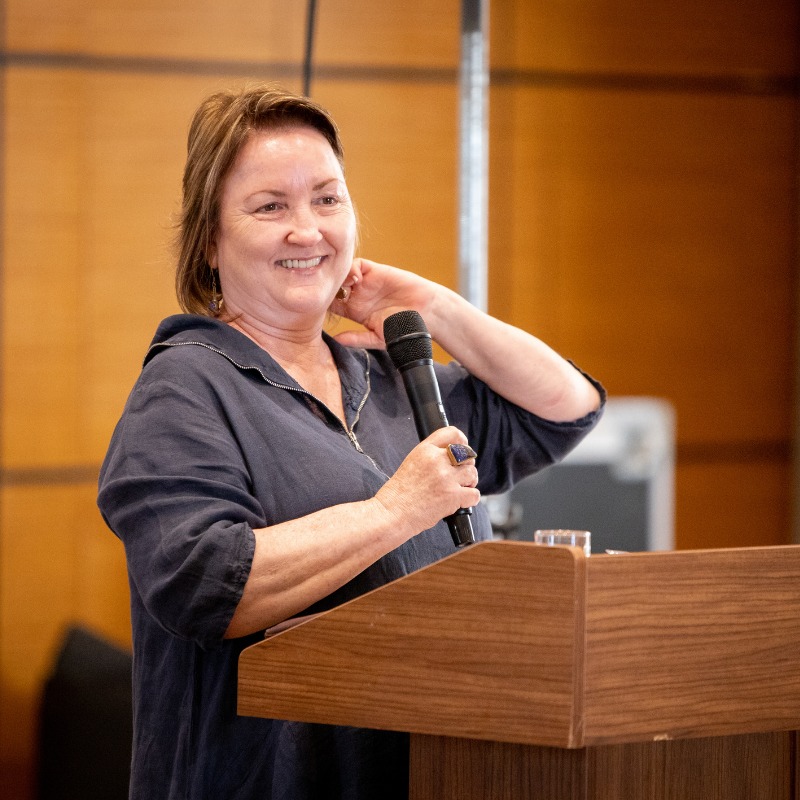41 Arab Women leaders from across the land gathered at the Golden Crown Hotel on Mount Precipice, Nazareth for the first day of training after the pandemic. They were joined by several precious Jewish Messianic sisters.
Orna Grinman spoke in the second and final sessions about the journey of the Shunamite in Song of Songs. She shared that communication is the most important part of a marriage. The bride and groom start their life together by saying “I do” – so also, we start our journey with Yeshua by saying that we want to be part of His bride. In the first verses of Song of Songs, the bride is talking about the bridegroom and saying that she wants to know HIm more intimately but she is not talking to Him. Then in verse 3, she addresses him directly. Something can be on our hearts but there is still a long journey to get there. The bride wants intimacy (1:4). There may be many others entering the rooms with her, she can’t make this journey alone.
1:5 As soon as the Shunamite declares her intention of moving deeper into intimacy with the bridegroom, she sees herself as both dark and lovely. The sun, the world, has darkened her. This is what happens whenever we ask God to go deeper into Him, we see both the dark and the beautiful. God shows us the darkness that is still in us but he doesn’t leave us, he purifies us. In His light, we see things that we didn’t see before. Still in all our congregations here in the land, we make this mistake in that after salvation we are ashamed to say that we still have areas of darkness. We need to be real with one another. When we are together as the bride, we often still have legalism and shame rather than openness, humility and healing.
1:6 The vineyard is a symbol of the heart. The Shunamite has had a hard life, she worked hard in the heat of the sun. She blames others and thinks that they have made her this way, this is a sign of the victim spirit. It is true that her brothers had authority over her to send her to work in the vineyards, but she had full authority over her own heart – how she responded and what she chose to dwell on. It’s hard for us to see our own part in the brokenness. We blame others – maybe a teacher, a co-worker or a husband. When we look at the global Bride of Messiah, we see many, many broken hearts. What do I do when my heart is hurting? When someone mistreats me? Do I blame others or do I take care of my own vineyard/heart? Invite Yeshua into this place. When I am angry and resentful, Yeshua is not on His holy throne in my heart – I am sitting there in His place. The bride asks to go deeper into His presence. Whenever we ask to go nearer, God shows us what is in our own hearts that needs confession, repentance and forgiveness. Every hurt and pain in my heart needs healing (Psalm 66:18).
1:7 The bride asks to know where to find the bridegroom during the heat of the day, the hardest part of the day. She is kind of resentful, why can’t she just be herself? Why isn’t it enough for me to ask you to draw me after you? Why doesn’t He answer my prayers? At times like this, I don’t want to pray, but I also don’t want my heart to become harder and darker. Can I invite Yeshua into this place and sit with Him as He works on my heart? If you are really hungry for more of Him, don’t be angry, don’t hide who you are, don’t be shy or ashamed.
1:8 The answer comes for the Shunamite to follow the tracks of the sheep, to join with all the others who are part of the Bride of Messiah. This isn’t a journey that can be taken alone. Where there are shepherds (pastors), they should know the condition of the hearts of the sheep.
Song of Songs 2:4&6 “Let him lead me to the banquet hall and let his banner over me be love…His left arm is under my head and his right arm embraces me.” Often we feel that God is far away but He is right there so close with one arm holding us and the other embracing us.
2:8 When I go deeper into Him, suddenly everything gets harder. The mountains are easy for Yeshua; He leaps over the mountains of health, finances, relationships, ministry…
2:9 Our personalities put up walls but God looks for even a small opening, a window. Our defence barriers stop even those that we would like to invite to come closer. But God already knows everything about us. The bride needs to come to a place of readiness to invite Him in.
2:10 The bridegroom tells her what she needs to do. Don’t be passive! Get up! Get away from everything that holds you back. You are free. Yeshua has already paid the price. He gave you everything you need.
2:13 When we get up out of our prisons, we will start to bear fruit. When He sets us free, we start to blossom.
2:14 God speaks to each one of us, He tells us what He wants. He wants to hear your voice.
2:15 The vineyard of the bride’s heart is bearing its first blossom and fruit but already the foxes want to steal and destroy. The bride needs to let go of her victim mentality and see that she can take responsibility for her own life and the decisions that she makes. How should she respond when others mistreat her? Before she was passive and didn’t act. Now the bridegroom is waiting for her to take action and invite Him into these areas. He can train her to catch the foxes.
Chapter 3
3:1-2 The bride thinks that everything is fine with her heart. She sees herself as the one doing all the hard work in the relationship. It seems that the bridegroom is not doing anything. But she has already forgotten what he told her in Chapter 1:8 and 2:15. He told her to follow the tracks of the sheep. He told her to catch the foxes. She instead goes to search for Him in the city. He has been speaking to her about the dark, difficult things in her life. His answers were not what she wanted to hear. She didn’t get the answer that she was looking for, but He said “Go!” (the Hebrew is Lech but it is mostly translated in English as come!) Before I can get a specific word about my life, I need to let Him clean my heart from the darkness.
3:3 The watchmen found her. They are there for the town’s security and represent things in our life that give us false security and false refuge. Something or someone that I turn to instead of (or before) turning to God. We need to pay attention to what is heavy on our hearts, what is bothering us, and invite Yeshua into those places.
Chapter 3:6-4:15 is the song of the Bride. The journey of an individual relationship becomes a group/corporate relationship with the Beloved.
Chapter 5
The sound of the Lord is someone (Genesis 3:8)
5:3 This verse shows the contradiction in the heart of the Bride. She went to look for the Bridegroom by night and yet when He comes to her she doesn’t want to open up for Him. This happens with us too, all the thoughts that come to us when we are invited into His presence – housework, accounts, work tasks, ministry. But God is faithful and will come through even a small opening in our defences. When the bride finally opens, the Bridegroom isn’t there. God doesn’t answer as we expected or in the timing we wanted. Maybe you asked God for something and He answered with something deep. Invite Him into those problems. He is calling you deeper into Him. God heals us but often, a month later we are back in the same place of brokenness. This time when she turns to her false refuge, it is harmful for her. God had taken her out of that place but she turned back and it was more difficult this time.
5:16 echoes the opening verses of Song of Songs: “His mouth is sweetness itself; he is altogether lovely.”
Chapter 6:1
Until now, the bride has been on a journey alone. But now she is connected with others on the same journey. Go and search for Him together.
6:4-9 These verses describe how God sees His bride.
6:13 (7:1 in Hebrew) The Shunamite is distracted again by those around her.
Chapter 7
The journey of the Bride now includes the hearts of others. 7:11-12 She invites the Bridegroom to come with her to work in the hearts of those around her. We can become busy serving and doing, but then our hearts might dry up.
Chapter 8
8:1-4 Healing comes in going back to the Bridegroom and spending time in His presence.
8:8-9 In the beginning, the brothers didn’t care for the bride – they didn’t even see her! Now she has glory, strength and weight (kavod in Hebrew). Whenever we give God the dark places in our hearts, He puts His light in us so that others can see.
8:12 The bride now cares for her vineyard. She has taken ownership of it and responsibility for caring for her heart.
 There is a wealth of information that can be found here but if you still have any questions, please
There is a wealth of information that can be found here but if you still have any questions, please  Our goal is to bring people together, to grow with each other and to serve others. Click here if you want to meet some new people and
Our goal is to bring people together, to grow with each other and to serve others. Click here if you want to meet some new people and 

